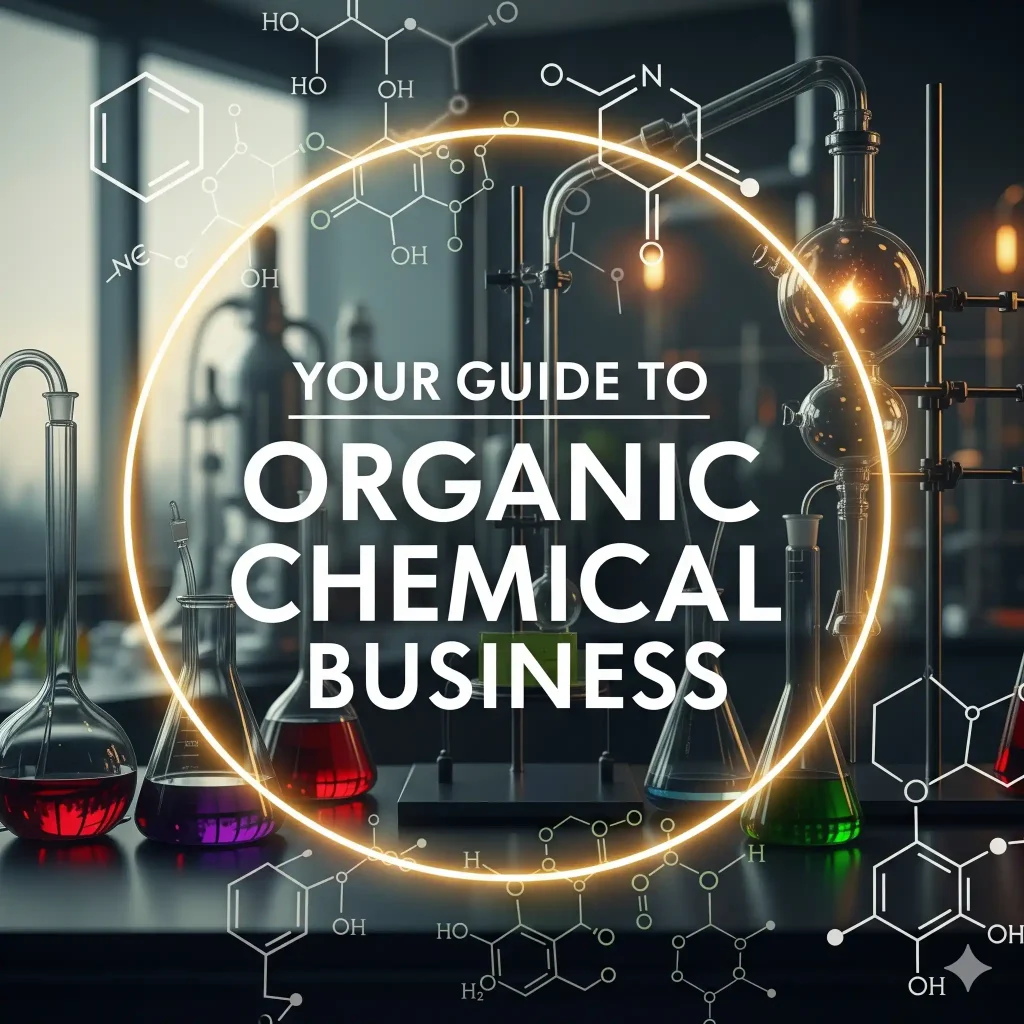The organic chemicals industry is an invisible giant that fuels the modern worlds. Organic chemicals are used in a plethora of products, such as the plastics in your smartphone and medicine cabinet, right through to synthetic fibers in clothing.
The chemistry of carbon underpins this industry, which effectively converts raw materials such as crude oil, natural gases, or plants into realized profitable commodities.
To start a new business will not be easy but has its joys. This is a field with its own cocktail of science, industry precision, and logistical management. The following guide will discuss the organic chemicals industry while providing pertinent business ideas and outlining the steps through which a viable and reputable business can be started.
Read Our Project Report: Click Here
Organic: An Introduction
The study of compounds containing carbon is considered organic chemistry. Organic chemicals are formed through the processing of carbon-rich materials into more complex substances. Traditionally, these raw materials have drawn from fossil fuels, but renewable ones such as biomass are growing in importance.

To think of an industry as a large tree of value.
- Trunk: Base Chemicals: Here, the process starts in large refineries or crackers, where crude oil and gas are broken down into “building blocks” such as ethylene, propylene, and benzene. Large volume and capital intensity characterize this industry.
- The Branch: Intermediates: These chemical bases are converted into various types of intermediate chemicals such as monomers, alcohol, and acids.
- The Leaves (End Products): These intermediates are finally used to manufacture final products such as plastics (polymers), adhesives, solvents, and pharmaceuticals.
It is the “branches” and “leaves” that the new entrepreneur will focus on, adding value to intermediates by converting them into more specialized products.
Finding Your Niche in a Vast Industry
In the organic chemicals industry, no single company can do it all. Specialization is the key to success. By concentrating on a certain market or product you will be in a position to accumulate deep knowledge and build a good reputation. Think of these pragmatic business possibilities.
Toll Manufacturing (Contract Manufacturing)
This is probably the most straightforward entry route into this industry. A client with the formula for the desired product pays you “tolls” in order to have it produced at your facility. You are a “chemical-kitchen for hire.” This model substantially lowers your market-risk since you don’t have to worry about placing the sale of the last product; you can just focus on a safe, efficient, and high-quality manufacturing process.
Blending Specialty Solvents
There are many players in various industries (e.g., industrial cleaning, electronics, and printing) requiring specific properties of solvent blends to do the job. By importing commodity solvents and blending them to custom formulations, you could sell them into specific clients. The job creates value where formulation expertise meets an in-depth understanding of the needs of the customer.
Read Our Book: Click Here
3. Bio-based and Green Chemicals
Sustainability is no longer a trend; it is now an economic force. Focusing on the production of chemicals from renewable resources, such as corn, sugarcane, or algae, will help you to position yourself in a forward-looking business. You could manufacture Bioplastics or Bio-solvents. This niche is appealing to environmentally conscious consumers and often attracts government paying incentives.
4. Masterbatches and Polymer Compounds
Instead of producing raw pellets which are a commodity; you could opt to specialize in compounding. Compounding involves mixing of basic plastics such as polypropylene and polyethylene with additives for enhanced properties. You will be adding pigments to create colored Masterbatches, glass fibres for reinforcement, or stabilisers for UV-resistance. In effect, you are developing grades of plastics tailored specifically for given applications.
Read More: A Guide For Chemical Business Startups
Setting Up the Business: From Blueprint to Production
Once you have made your choice on a niche, it is time to transform your idea into reality. This is the capital-intensive stage where “every detail matters”.

Your facility and location are vital. You want an industrial zone with correct infrastructure and utilities. Design for safety first; this will encompass matters such as adequate ventilation, spill-containment systems, and fire-fighting facilities.
Chemical reactors, mixing tanks, and distillation columns are the heart of your plant, and they represent a considerable investment too.
The industry is a complicated web of regulations. The chemical industry is heavily regulated. You will not only have environmental clearances, factory licensing, pollution control board consent to operate, but also licenses to manufacture, store, and handle some chemicals.
Safety plan creation and Technical Hazard and Operability (HAZOP) are good practices, but in many circumstances, the law requires them.
Then your team is your greatest asset. This is not for teenagers. You require competent operators, properly trained chemists, and qualified chemical engineers to run a safe plant. Allocate sufficient resources to train your personnel on safety and operational matters.
Discover the Right Business for You With Our Startup Selector Tool
The Elements of Successful Venture
The organic chemicals industry is a fundamental business that offers immense opportunities to entrepreneurs who are knowledgeable and diligent. The barriers to entry, both in terms of expertise and capital, are high. However the rewards can also be substantial. Success is not an accident; It is engineered.
Read More: The $7 Billion Chemical Export Gold Rush: How Indian Startups Can Dominate the WANA Market
It all starts with a strategic decision to specialize. This could be a manufacturing business, custom blends or sustainable alternatives. You must then build your business on the foundations of operational security and strict quality control. Your profitability and reputation will ultimately depend on how well you can build trust with your customers. This trust is based on your ability deliver high-quality products, batch after batch. Combining sound business practices with scientific knowledge can help you create a successful enterprise that provides the materials needed for many innovations.
Organic Chemical Business: Frequently Asked Questions (FAQ)
Q1. What’s the real difference between organic and inorganic chemicals?
Organic chemicals always have carbon, usually mixed with hydrogen and sometimes other things. You find them in sugar, gasoline, and plastic—anything related to living things. Inorganic chemicals don’t have carbon joined with hydrogen. Salt, metals, and acids are all inorganic.
Q2. Is this a good business for a rookie with not much cash?
It’s tough for beginners with little money. You need a lot for equipment, licenses, and a safe place to work. Instead of building a big factory, try toll manufacturing or start by mixing simple chemicals on a small scale.
Q3. How big a deal is R&D in this game?
R&D is very important. If you want to make new products or improve how you make them, you need to keep researching and testing. This is even more true if you want to work with special or “bio” chemicals.
Q4. Biggest risk running a chemical biz?
Safety is the main risk. Fires, explosions, or leaks can hurt people and the environment. You must make safety your top priority every day.
Q5. Can I go “green” with an organic chemical business?
Yes, you can. More people want eco-friendly products, so t
his is a great chance. Use natural ingredients, make things that can be recycled, and try to cut waste. This helps both the planet and your business.







